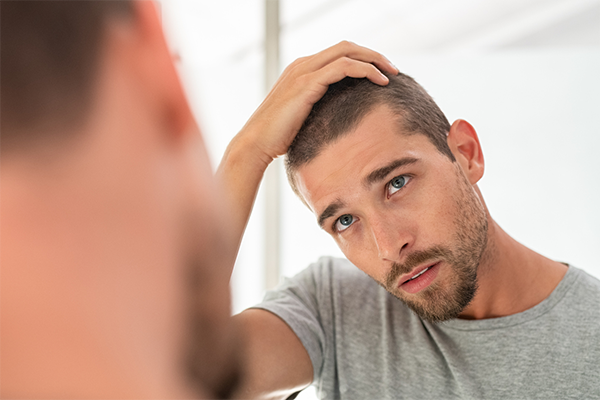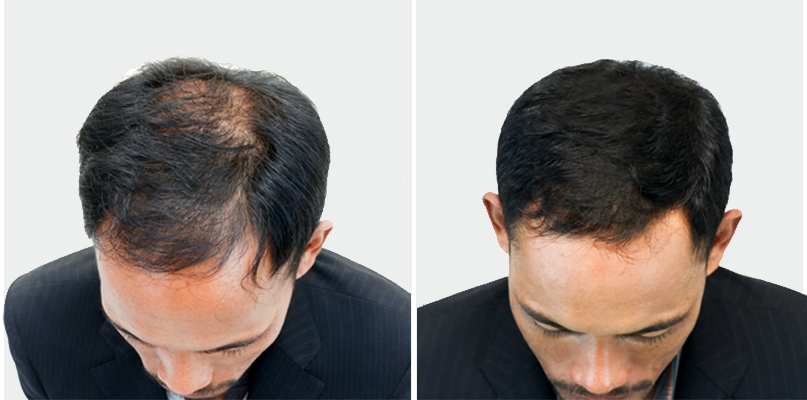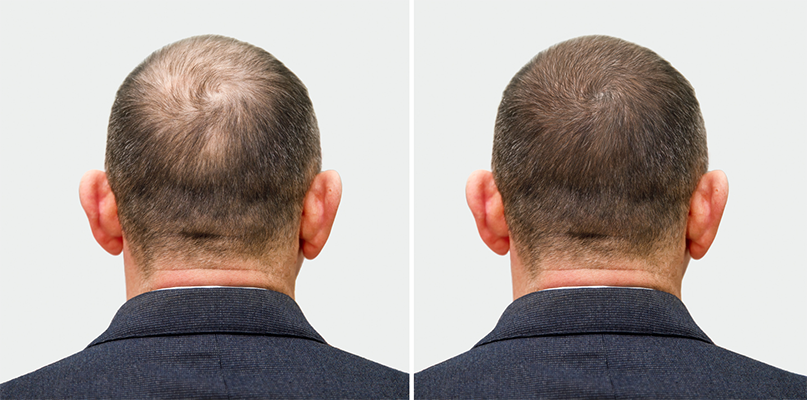
Hair loss treatments for a fuller head of hair
Keep what you have and/or grow your hair with our proven treatments.
- Results in as soon as 3 months
- Prescription treatments
- Easy online process
- Clinically Proven Results
- Trusted by thousands of physicians
- Lowest Prices Guaranteed
Best Sellers

Minoxidil 2.5mg tablet
Oral Minxodil has also been noted for its off-label use in addressing hair loss concerns in Men and Women. Oral Minoxidil works by enhancing blood flow to the hair follicles, stimulating hair growth, and prolonging the hair growth cycle.

Finasteride 1mg tablet
Finasteride is a medication used to treat male pattern hair loss, also known as androgenetic alopecia. It works by blocking the enzyme 5-alpha-reductase, which converts testosterone to DHT, a hormone that causes hair loss.
You don’t have to be a statistic
By age 35, two-thirds of men begin losing their hair
By age 50, up to 85% of men have noticeable hair loss
Male pattern baldness accounts for 95% of male hair loss
Start Your TreatmentClinically Proven Results
Before and after



Oral Minoxidil
FAQs
Oral Minoxidil 2.5mg Tablet is a medication specially formulated to address hair loss and promote hair regrowth. It's designed to provide a convenient and effective way to tackle the frustrating issue of thinning hair.
Yes, they do. In fact, generic prescription medications must receive approval from the FDA to be considered the generic of a brand name.
Oral Minoxidil 2.5mg Tablet contains minoxidil, a potent vasodilator. This means that it relaxes and widens the blood vessels, improving blood flow throughout your body, including to the hair follicles.
By enhancing blood circulation to the hair follicles, Oral Minoxidil 2.5mg Tablet nourishes them with the essential nutrients they need for healthy hair growth. It also prolongs the growth phase of hair, which is known as the anagen phase, leading to thicker, fuller hair over time.
Hair loss can be attributed to various factors, and understanding its root causes is essential for choosing the right solution:
- Genetics: Hereditary hair loss, also known as male pattern baldness (androgenetic alopecia) or female pattern baldness, is a common cause of hair loss. It tends to run in families and is primarily influenced by genetic factors.
- Hormonal Changes: Hormonal imbalances, such as those occurring during menopause, pregnancy, or thyroid disorders, can contribute to hair loss.
- Stress: High levels of stress can trigger a condition called telogen effluvium, leading to significant hair shedding.
- Medical Conditions:Certain medical conditions, such as alopecia areata or scalp infections, can result in hair loss.
- Medications:Some medications, like chemotherapy drugs, can cause temporary hair loss as a side effect.
- Nutritional Deficiencies:Inadequate intake of essential nutrients, such as iron and protein, can affect hair health and lead to hair loss.
Finasteride
FAQs
Finasteride is used to treat men who have symptoms of benign prostatic hyperplasia (BPH) and male pattern hair loss, also called androgenetic alopecia.BPH is caused by an enlarged prostate. Men with BPH usually have difficulty urinating, a decreased flow of urination, hesitation at the beginning of urination, and a need to get up at night to urinate. Finasteride will make these symptoms less severe and reduce the chance that prostate surgery will be needed. For men with hair loss, finasteride will increase the number of scalp hairs but will not increase the amount of body hair.
Finasteride blocks the action of an enzyme called 5-alpha-reductase. This enzyme changes testosterone to another hormone that causes the prostate to grow. By blocking this enzyme, Finasteride can increase testosterone levels in the body, which decreases prostate size and causes scalp hair to grow.
Many clinical trials and results of 10-year follow-up studies examining finasteride and its long-term efficacy suggest significant lasting increases in hair growth after long-term finasteride use. A finasteride treatment is most effective on the vertex scalp, less on the frontal scalp, and it is least effective on the temporal regions. In addition to improved hair counts, a finasteride treatment can lead to increased hair thickness as well.
Finasteride is able to stop further hair loss in this way in over 95% of men that take it.



